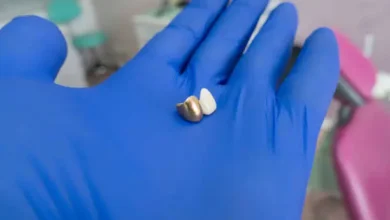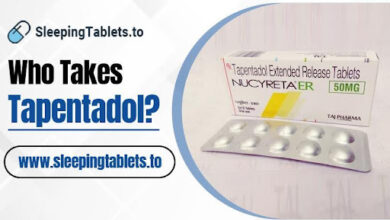Exploring PHP Programs for Mental Health and Addiction

When facing the challenges of mental health disorders or addiction, finding the right treatment program is essential for recovery. One such option, which strikes a balance between inpatient and outpatient care, is the Partial Hospitalization Program (PHP). These PHP programs provide an intensive therapeutic environment that offers structure and support while allowing patients to maintain some independence by returning home at the end of each day.
But what exactly are PHP programs, and how do they support individuals recovering from mental health or addiction issues? In this blog, we’ll break down what these programs entail, who they benefit, and why they are a crucial part of the recovery process.
PHP programs (Partial Hospitalization Programs) are intensive, structured treatments designed to support individuals struggling with mental health disorders and addiction. These programs offer a middle ground between inpatient and outpatient care, providing comprehensive therapy without requiring patients to stay overnight. This blog explores the benefits, structure, and purpose of PHP programs for mental health and addiction recovery. It also answers common FAQs to help individuals determine if PHP programs are the right solution for their needs.
What Are PHP Programs?
PHP programs are highly structured treatment programs designed for individuals dealing with serious mental health issues, addiction, or a combination of both. They offer a level of care that falls between inpatient hospitalization and outpatient therapy. Patients in PHP attend therapy and treatment sessions during the day, typically five days a week, and return home or to a sober living environment in the evenings.
The goal of PHP programs is to provide intensive care without the need for full hospitalization. Patients receive comprehensive therapy that addresses the root causes of their conditions, helping them develop coping strategies and improve their quality of life.
Structure of PHP Programs
A typical day in a PHP program can last anywhere from four to six hours and includes a variety of therapeutic activities. While each program may differ depending on the treatment facility, most PHP programs share the following components:
Individual Therapy: One-on-one sessions with a licensed therapist allow patients to delve into personal issues, trauma, or behavioral patterns that may be contributing to their mental health or addiction struggles. Individual therapy helps patients build self-awareness and develop customized coping strategies.
Group Therapy: Group therapy is an essential aspect of PHP programs. These sessions provide a supportive environment where patients can share their experiences and challenges with others who understand their journey. Group therapy fosters community and reduces feelings of isolation, which is especially important in addiction recovery.
Psychoeducation: Education plays a significant role in PHP programs. Psychoeducational sessions help patients learn more about their condition, how it affects them, and what they can do to manage it. Understanding the science behind addiction or mental health disorders empowers patients to take charge of their recovery.
Family Therapy: In many cases, mental health and addiction issues affect not just the individual but their entire family. PHP programs often include family therapy sessions to help loved ones better understand the patient’s condition and learn how to provide effective support.
Holistic Therapies: Many PHP programs incorporate holistic and alternative therapies such as art therapy, mindfulness practices, yoga, and meditation. These activities help patients reduce stress and improve overall well-being, complementing traditional talk therapy.
Medication Management: For those dealing with mental health disorders, medication can be an important part of treatment. PHP programs typically include regular check-ins with psychiatrists or other medical professionals to monitor the effectiveness of medications and make adjustments as needed.
Benefits of PHP Programs for Mental Health and Addiction
Now that we’ve covered the structure of PHP programs, let’s explore the benefits that make these programs an effective choice for many individuals.
Intensive Support Without Full-Time Hospitalization
One of the biggest advantages of PHP programs is that they provide intensive care without requiring patients to stay in a hospital 24/7. This allows patients to receive the treatment they need while maintaining some level of independence.
Daily Focus on Recovery
PHP programs provide daily therapy and treatment, which helps individuals stay focused on their recovery. This level of consistency can be crucial for people struggling with addiction or severe mental health disorders, as it provides a routine that reinforces positive behaviors.
Personalized Treatment Plans
PHP programs are highly customizable, with treatment plans tailored to each patient’s specific needs. Whether someone is dealing with depression, anxiety, PTSD, or substance use disorder, their treatment plan will include therapies that target their unique challenges.
Smooth Transition Between Levels of Care
For individuals transitioning from inpatient hospitalization, PHP programs offer a smoother step-down option. Similarly, for those who may not yet require inpatient care but need more than traditional outpatient therapy, PHP programs provide the right level of support.
Relapse Prevention
For those recovering from addiction, PHP programs emphasize relapse prevention by teaching coping mechanisms and identifying triggers. In mental health treatment, relapse prevention includes managing symptoms like anxiety, depression, or mood swings to avoid crisis situations.
Family Involvement
Involving family members in the recovery process can enhance the chances of long-term success. PHP programs often include family therapy to help mend relationships, improve communication, and ensure that patients have a supportive home environment.
Who Are PHP Programs Best Suited For?
PHP programs are ideal for individuals who need more intensive support than standard outpatient therapy but do not require the round-the-clock care of inpatient hospitalization. Here are some examples of who may benefit from a PHP program:
Individuals transitioning from inpatient care who need ongoing support but are ready to reintegrate into daily life.
People experiencing severe mental health issues, such as depression, anxiety, or bipolar disorder, who require daily therapy.
Those struggling with substance abuse who need intensive treatment to prevent relapse but do not require detoxification.
Individuals who have a strong support system at home but need a structured therapeutic environment during the day.
The Difference Between PHP, Inpatient, and Outpatient Programs
Understanding the differences between these three types of care can help clarify whether a PHP program is the right choice.
Inpatient Programs: Inpatient or residential programs require patients to live at the treatment facility 24/7. This is often necessary for individuals in crisis or those needing medical supervision during detox. Inpatient programs are the most intensive form of care.
PHP Programs: PHP programs offer structured, intensive therapy during the day but allow patients to return home or to a sober living facility at night. This makes it a good choice for individuals who need substantial support but do not require full-time care.
Outpatient Programs: Outpatient programs offer therapy and treatment a few times a week, making them less intensive. This option is suitable for individuals who have more stability in their recovery or mental health management.
Why Choose PHP Programs?
PHP programs are ideal for people in need of intensive care but who also want to maintain their independence. These programs offer a unique balance of structured treatment and flexibility, allowing patients to work on their recovery while still staying connected to their home environment.
For those dealing with both mental health disorders and addiction, PHP programs provide comprehensive care that addresses both issues simultaneously, improving overall outcomes. Whether as a step-down from inpatient care or an alternative to outpatient therapy, PHP programs give individuals the tools, skills, and support they need to build lasting recovery.
FAQs About PHP Programs
How long does a PHP program last?
PHP programs typically last anywhere from a few weeks to several months, depending on the individual’s needs and progress. The duration is flexible and based on each person’s treatment plan.
Is PHP treatment covered by insurance?
Many insurance providers cover PHP programs, though coverage details vary. It’s essential to check with your provider to confirm what is covered and if any co-pays or additional fees apply.
Can I work while attending a PHP program?
Since PHP programs operate during the day, many people find it difficult to maintain full-time employment while in treatment. However, some employers offer flexibility for employees seeking mental health or addiction treatment.
What conditions are treated in a PHP program?
PHP programs treat a variety of conditions, including depression, anxiety, bipolar disorder, PTSD, and substance abuse disorders. Treatment plans are tailored to meet each patient’s unique needs.
What happens after completing a PHP program?
After finishing a PHP program, many individuals transition to a less intensive form of care, such as outpatient therapy or support groups, to maintain their recovery progress.
If you or someone you love is struggling with mental health or addiction, PHP programs can offer the structure, support, and therapeutic tools necessary for a successful recovery. By providing a blend of intensive therapy and daily independence, PHP programs empower individuals to rebuild their lives while receiving the care they need.



